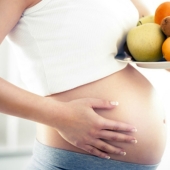Several years ago, there was a nurses’ study that was conducted about nutrition and one of the areas they talked about was fertility. And what they found is that as people begin to eat more whole foods, that means you are eating good sources of protein, that means that you are eating vegetables, that means you are eating fruits, it means you are eating whole grains, you are eating nuts and seeds, you are eating legumes, and that you are creating a very important nutrient-dense diet for yourself, that it improves your likelihood of being able to be fertile and be able to conceive.
What they found is people that eat processed foods, that eat junk foods, that tend to be a little bit more overweight because of the foods that they are eating; it throws off their female balance of their estrogens and their progesterone so that they have an imbalance in their cycle and that imbalance causes them to be less likely to be fertile.
So the key point about nutrition is that nutrition helps to balance our hormones. It helps to balance our cortisol level which is our stress hormone and when we have those things in better balance, our body is prepared and able to become fertilized and to also be able to hold a child so that we are not dealing with miscarriages or, you know, other issues related to our feminine hormonal system. So the key point--whole foods helps your body prepare to have a child and to be able to maintain a pregnancy.
About video: An apple a day does more than just keep the doctor away. Dr. Daemon Jones shares how nutrition can affect a woman's fertility level.
- 19 views













